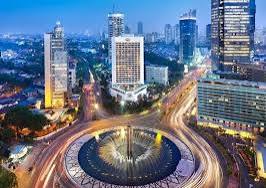Top 10 most expensive states to live in Nigeria.

The National Bureau of Statistics (NBS) has unveiled its Consumer Price Index (CPI) report for May 2025, spotlighting the ten states most profoundly affected by inflation in Nigeria.
The hierarchy is predicated on the year-on-year (YoY) alteration in all-items inflation, encapsulating the overall cost of living in each region.
Nigeria’s headline inflation rate receded to 22.97% in May 2025, a decline from 23.71% in April, as per the latest Consumer Price Index (CPI) report disseminated by the National Bureau of Statistics (NBS).
This denotes a 0.74 percentage point diminution on an annual basis and a remarkable 10.98 percentage point drop relative to May 2024, when the inflation rate was at 33.95%.
On a month-to-month basis, inflation also tapered to 1.53% in May, down from 1.86% recorded in April, indicating a deceleration in the ascent of consumer prices.
Food inflation, a pivotal driver of household expenditure pressures, remained elevated at 21.14% YoY, although this signifies a sharp decline from the 40.66% recorded in May 2024. The deceleration is partly ascribed to the statistical base effect following the CPI rebasing to the 2024 base year.
On a month-to-month basis, food inflation ascended to 2.19%, up from 2.06% in April, signifying fresh price augmentations in commodities such as yam, cassava, maize flour, sweet potatoes, fresh pepper, and Ogbono.
This rise suggests that while year-on-year inflation is moderating due to base year adjustments, Nigerians continue to contend with real-time price surges in staple foods.
Food inflation persists as the most significant pressure point, particularly in the northern states where insecurity, fragile supply chains, and climate disturbances endure.
Here is a detailed account of the top ten states with the highest cost of living in May 2025:
10. Benue State
Benue recorded an all-item inflation rate of 25.9% YoY and 3.1% MoM. Food inflation stood at 22.0% YoY, while food prices escalated by 4.1% MoM.
The state’s inflation trajectory appears to be driven by food-related expenses, which have ascended steadily. As a principal food-producing region, disruptions to agricultural activities seem to be contributing factors.
9. Edo State
Edo posted a YoY all-item inflation rate of 26.0%, with a notable 2.9% decline in MoM inflation, the sharpest monthly drop among the top ten.
However, food inflation remained a concern, rising 4.3% MoM and 19.4% YoY. This indicates that the decline in headline inflation may be linked to falling prices in non-food categories such as transportation or energy, even as food costs continue to rise.
8. Cross River State
Cross River reported 26.1% headline inflation YoY and 4.3% MoM, while food inflation stood at 27.3% YoY and 11.1% MoM, the highest monthly food inflation in the country.
The sharp rise in food prices suggests possible supply disruptions or market volatility. Speculative pricing and transport inefficiencies likely exacerbated food accessibility in May.
7. Taraba State
Taraba posted 26.5% headline inflation YoY and 4.2% MoM, with food inflation climbing to 38.6% YoY and 5.4% MoM.
The state’s food inflation is one of the highest nationally, hinting at pressure from agricultural supply constraints, which are elevating the cost of fresh produce and staples.
6. Nasarawa State
Nasarawa recorded 27.4% inflation YoY and 2.5% MoM, while food inflation was 25.3% YoY and a mere 0.2% MoM. This modest monthly food inflation suggests temporary price stability in food items, though the YoY figure indicates longer-term cost pressures, possibly from energy, rent, or transportation categories.
5. Oyo State
Oyo’s headline inflation ascended to 28.9% YoY, though the state witnessed a 0.8% MoM decline. Food inflation stood at 19.1% YoY and -0.1% MoM, indicating mild deflationary pressure.
The state’s inflation may be easing due to improved access to food or subsidies in transportation, though the general cost of goods and services remains elevated.
4. Abuja (FCT)
The Federal Capital Territory recorded 31.1% inflation YoY and a slight -0.1% MoM drop. Food inflation stood at 26.7% YoY, with a significant 6.4% MoM rise. This indicates that while general prices were relatively stable in May, sharp increases in food costs—possibly due to Abuja’s heavy reliance on supplies from neighboring states—kept the pressure on consumers.
3. Plateau State
Plateau recorded 32.3% headline inflation YoY and 0.4% MoM. Food inflation stood at 18.6% YoY, with a 1.7% MoM decline, making it one of the few states with month-on-month food deflation.
However, the high headline inflation suggests non-food components—such as health, education, and transport—are major drivers of rising living costs in the state.
2. Niger State
Niger recorded 35.0% inflation YoY and 3.5% MoM, with food inflation at 30.3% YoY and 0.2% MoM. Despite food prices staying mostly flat in May, the annual rise reflects long-term structural issues. Fuel costs, transportation, and insecurity likely continue to disrupt internal markets and food movement.
1. Borno State
Borno remains the most expensive state to live in as of May 2025, with the highest all-item inflation rate of 38.9% YoY and 4.4% MoM. Food inflation surged to 64.4% YoY, with monthly food inflation rising 8.0%, the second highest in Nigeria.
Ongoing insecurity, displacement of farming communities, and logistics bottlenecks are sharply escalating prices.
The state’s inflation profile reflects profound economic vulnerabilities, especially in food access.








